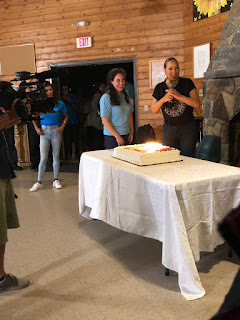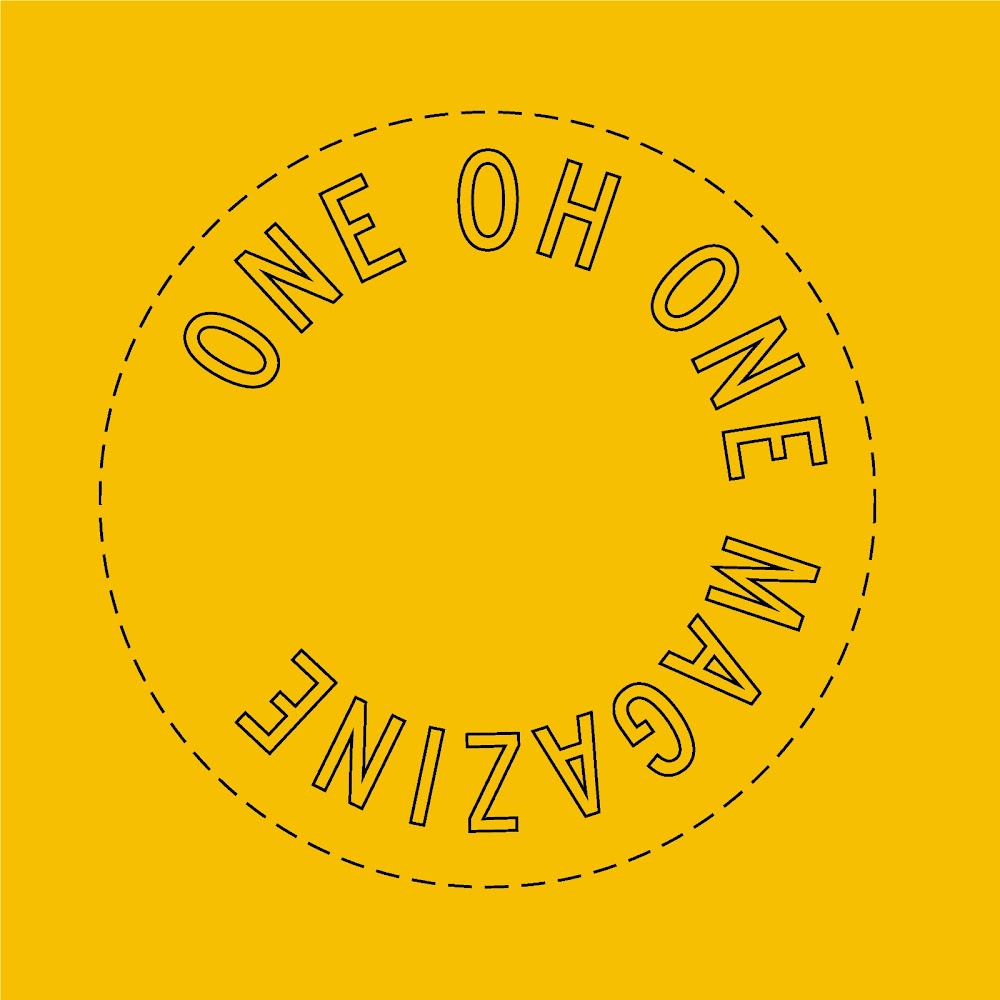Job interviews at the best of times are nerve-wracking experiences, everyone will experience anxiety to some degree - that’s totally normal. Of course, this can be amplified if you struggle with your anxiety on a day-to-day basis!
I have always hated job interviews, I remember my very first interview for a sales assistant position at 16, god, I was so nervous, I didn’t eat for 24 hours. Safe to say, I absolutely flunked it, and got the call the same day to tell me I had been unsuccessful (brutal). I vowed to never go to a job interview again, feeling totally ashamed I couldn’t answer their question of, ‘where in the store is best to display our new handheld fan collection, and should we put the batteries next to the display or away?’
But of course, you can’t avoid job interviews, unfortunately, you just have to learn how to handle them!
Until I was 22, most of my job interviews were for part-time roles in stores or cafes, my first big interview was for an Educational Support Assistant role at a local sixth form college. Getting that interview was definitely a ‘right place at the right time’ sort of situation, after inquiring about work experience and being told they had a vacancy if I was interested. I’d gone in to speak, unofficially, with the SENCo of the college to ask more about the role, and knew straight away that I definitely wanted to apply. She pretty much told me on that day that she’d be up for hiring me, but we had to go through the official route of applying/interviewing, ‘there will only be 3 people on the interview panel!’ yeah, 3 people too many to my anxious brain! I really thought I would have gotten away with not having an interview, after explaining how I often struggled with anxiety, she was incredibly understanding and reassured me that she would be there, and she’d fight my corner.
Going into that interview, yes I was nervous, but also felt some comfort knowing that I’d already impressed ⅓ of the panel, and just had to do the same with the others. The whole interview, I could feel my throat closing in, I was shaking, but I got through it and I received a call the same day to say I had been successful RESULT! I worked there from 2018 to the start of this year.
The last time I had an interview was for my current role at a university. I hadn’t been sure at the time whether I wanted to attend, because I loved the job that I was in - I had been applying at a time where I was interested to see what other opportunities were out there with my experience, not expecting any results. Anyway, I received an invite to attend an interview, and at that point, I wanted nothing more than to avoid the whole situation and stay in the comfort of my familiar role. I was so close to saying no, feeling sick at the prospect of having to go and sit opposite a panel of people asking me questions I might not be able to answer (*flashbacks to the handheld fan*). But, I figured, my anxiety and clear desire to steer clear of interviews was just definite proof I needed more experience. And plus, I was interested in hearing more about the role I had applied for.
I spent the time before my interviewing researching the role, pulling apart the job description to write about how my current experiences and skills matched up to the job role, and I tried to imagine the sort of questions they would ask me. As you expect, the usual suspects ‘tell me about a time you have successfully handled conflict’, ‘what are your strengths/weaknesses’? As had happened in my very first interview, I didn’t eat anything the day before - god bless physical symptoms of anxiety, and couldn’t face any sort of food/drink the morning of. I had planned my route, I would drive to work, park up, spend an hour in work answering emails, meeting students, and then walk across for my interview.
I spent that morning at work crying in the toilets for pure fear of going to the interview, for fear of being offered the job, and needing to decide what to do. I remember my colleagues having to hype me up to leave, reminding me how I would smash it and that they were proud of me. I spent the walk to the interview trying to hype myself up. It failed miserably, as I sat directly outside the building I was supposed to interview in having a HUGE panic attack. Despite the fact I was incredibly embarrassed to be having this experience in public, worrying the people interviewing me would see me, I was paralysed by anxiety and couldn’t move. At that point, I wanted to admit defeat, I couldn’t go in.
I sat there for about 5 minutes, trying to calm myself down. And perhaps the strongest inside voice I had ever heard, appeared out of nowhere and said ‘Nope, you’re not doing this to me anymore. You’re not winning’. And just like that, I stood up, wiped my tears, hoped my make-up hadn’t smudged too much, took a deep breath, and walked into the building. I had NEVER felt that strong and determined, and there was no fight back from my anxious voice, it was like I had taken it by surprise! To this day, I can’t believe how quickly I was able to pick myself up.
As soon as the interview began, my anxiety began to dissipate, it didn’t disappear completely and there were times where I couldn’t answer a question and I wanted the ground to swallow me, but I survived. And all the while I couldn’t believe my strength. I felt like saying to the panel, I was a broken mess outside just 2 minutes ago, and look at me go!!! As I’ve already made clear, I did get the role! And to this day, I am immensely proud of myself, because I could so easily have left that day and missed out on this opportunity.
SO after all this - what tips do I have for handling your anxiety in a job interview?
- Prepare, not just the night before! Sit with the job description, try to apply your experience and skills to explain why you could meet the expectations/specification.
- Know where your interview is taking place, sort out your route ahead of time, and give yourself plenty of time, you don’t want to be rushing!
- Before going into the interview, take deep breaths.
- Avoid caffeine before your interview, if you already struggle with interview nerves, adding caffeine will amplify all the physical symptoms and can make it difficult for you to relax
- Research the company, if they ask you why you want to work for them - can you highlight parts of the company values which match with yours?
- It’s okay to not understand a question, ask if they can rephrase. If you still don’t understand what they mean when they’re asking where they should place the handheld fans, hold your hands-up, admit defeat, and explain you are unable to answer. You could say: ‘I’m really sorry, I am unable to answer that question right now, am I able to come back to this at the end of the interview?’ This can buy you some time to think, or you could say ‘I’m sorry, I am unable to provide you an answer to that question’. You’re only human, not everyone has the answer to everything, we’re not Alexa.
- If you know you fidget a lot, try and take something with you to make it less obvious you are fidgeting, wear a ring that you can play with under the table, or find something discrete to take with you to channel that fidgeting.
- Maintain eye contact, as scary as it seems - don’t look at the table.
- If they offer you water, take it - if you feel your throat drying up, or you feel yourself becoming particularly anxious, take a sip.
- It’s okay if you don’t have any questions when they ask, but I would always try and have some banked… Perhaps you could ask what a typical day is like in the office, what they enjoy about working for the company? What sort of opportunities for progression are available? If you’re really at a blank, explain you don’t have any questions at that time, but you would be able to email anything to the relevant people should anything come up.
- Treat any job interview - no matter how much you want the role - as purely experience, the more pressure you put on yourself to succeed, the more your interview will come across staged and intense, try and relax, of course, you’re aiming for the best outcome, but don’t pressure yourself.
After the interview, take some time to recollect. Don’t be diving straight into any taxing tasks. Reward yourself in some way, remind yourself how proud you are of yourself! Whilst you’re waiting for your result, try not to overthink it. If you get the job - celebrate!! If you are unsuccessful, don’t be too hard on yourself, you did amazing even going to the interview!
Follow my blog with Bloglovin











































Social Icons